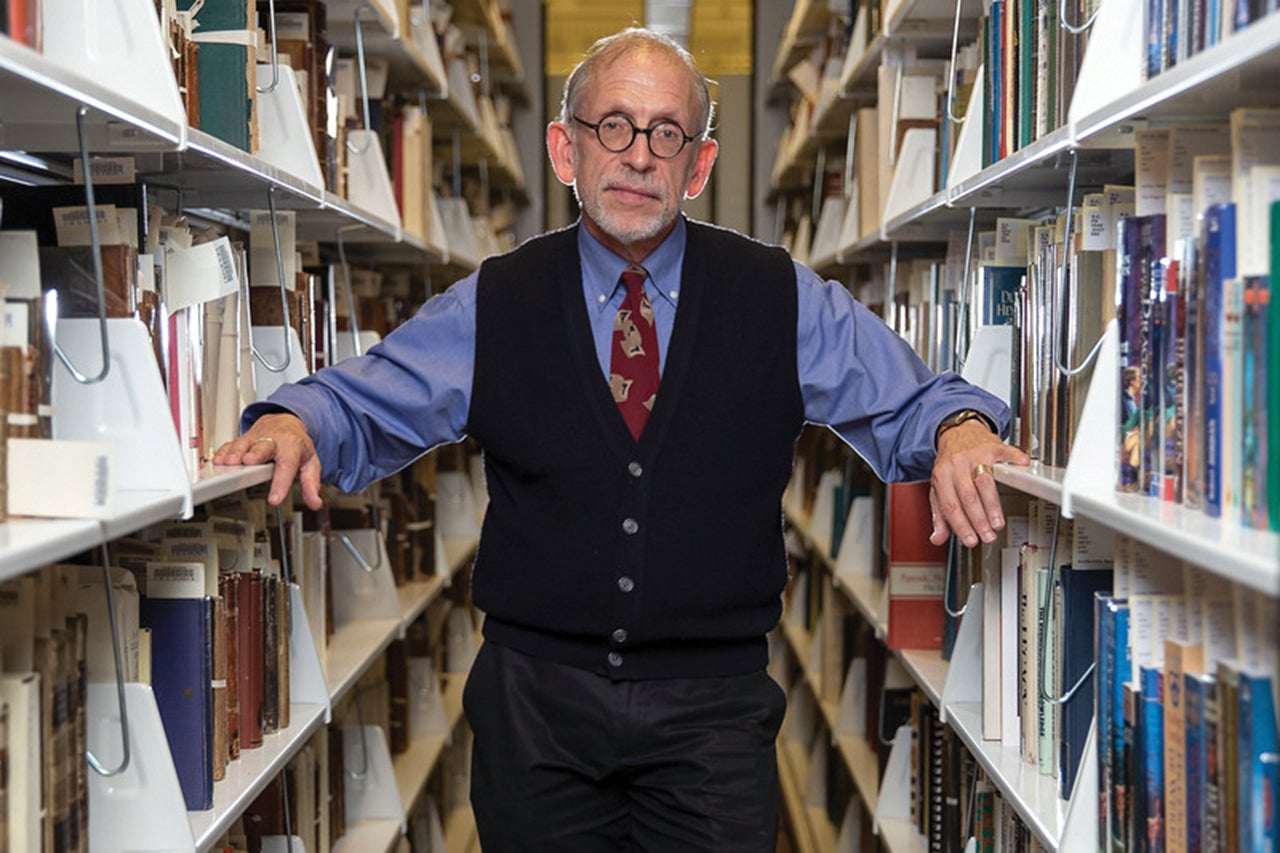This past fall, the Holy City celebrated diversity and equal rights for all residents during Charleston Pride, which drew thousands of volunteers and participants. This large and engaged cohort bodes well for the present and future of Charleston’s lesbian, gay, bisexual, transgender and queer (LGBTQ) community.
But what of its past? Where are the statues or historical markers? The local sources that tell their stories? For a city that trades so heavily on its past, why is such an integral chapter of its 300-plus–year history so conspicuously absent?
Due to a long practice of stigmatizing LGBTQ individuals, available archival materials have long been at risk of being hidden or destroyed. And so, the old maxim remains true: We can make history only when we record and preserve it.
These twin goals – to save and share the stories of oft-forgotten individuals – inspired the Documenting LGBTQ Life in the Lowcountry project. Headed by the libraries’ scholar-in-residence, Harlan Greene ’75 (pictured above) and Cara Delay of the College’s Women’s Health Research Team, the project is the first of its kind in the region and was made possible by a $200,000 grant from the Gaylord and Dorothy Donnelley Foundation. Local philanthropist and civil rights activist Linda Ketner, who received an honorary doctorate of humane letters from the College at last spring’s commencement, has also offered a $25,000 donation-matching challenge to ensure the project becomes a permanent resource.
“Growing up LGBTQ, particularly in the South, was a lonely, frightening, shaming kind of journey – and, to a great extent, I think it still is in many parts of South Carolina,” says Ketner, who is also contributing her personal papers. “If young people can learn from some of us who have gone through those experiences, it might help them – it might even save lives.”
The project seeks to shed light on the region’s understudied LGBTQ population by collecting archival materials and recording oral histories. The project team wants to hear from members of the LGBTQ community, whether they are new transplants or longtime residents.
“The role of our library is to document the history and culture of the region,” says John White ’99 (M.A.), dean of the College’s libraries. “It’s impossible to do that if you leave certain groups out.”
The impact is already tangible – or at least audible. More than 20 oral histories have been recorded, and a dozen collections of organizations and individuals dating back to the 1850s now call Special Collections home. Spanning from the personal papers of renowned cookbook author John Martin Taylor to the organizational records of the Alliance for Full Acceptance, these materials will soon be freely accessible online. With guidance from project staff, CofC graduate students are also researching these new materials as part of their master programs’ theses.
“If students and faculty are part of our collecting process, the link between the library and other academic departments already exists,” says Greene, the project’s principal investigator. “We know these materials will be used to support research right away – and far into the future, too.”
Adds Delay: “This project is effecting real change in our community, bringing to light the previously hidden life stories of a significant population in the South Carolina Lowcountry.”
In support of the project, the libraries have hosted public programs exploring Lowcountry LGBTQ history, inviting to campus such speakers as authors Blanche McCrary Boyd and Sheila R. Morris. Project staffers Brandon Reid and Rebecca Thayer have become fixtures at campus- and city-wide LGBTQ events.
“We all have the experience of feeling like we’re the only one,” says Taylor DeBartola ’10, an oral history narrator and donor. “People are looking for a shared experience. With this project, we can ensure that all members of the Lowcountry LGBTQ community have a place to find positive representation.”
To learn about donating materials, recording an oral history or supporting the project, visit speccoll.cofc.edu/lgbtq.




